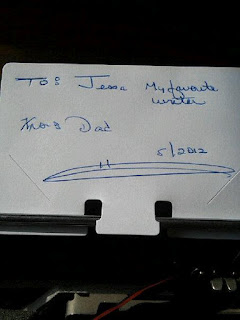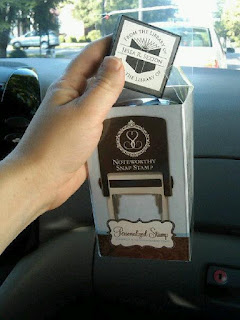The words an Acts of Service person wants to hear most are
these: “Let me do that for you” (“The 5 Love Languages”). Making more work or promising
to help and then not can bring hurt feelings (“The 5 Love Languages”).
I decided to start with this language because it is my
lowest. I thought for a long time it was tied with the rest, but I decided to
take the “For Singles”
quiz on the 5 Love Languages website and got a
zero.
I think women can falsely believe this is our love language
because we feel pleased when our husbands pitch in around the house. As
progressive as we are, women, in general, are still often expected to take care
of the majority of that work. I don’t say it to be controversial—I say it because
I see it over and over and over again: in my generation, in ones before me, and
in younger generations as well. “We’ve come a long way baby…” but some mindsets
are still lingering. I also don’t say it to make some sweeping statement about
who should be doing what in a home, but I do think a conversation on roles and
responsibilities would be valuable.
If you aren’t married yet, you can watch how your possible
in-laws handle things, or ask your fiancé how things were handled in his or her
house. Often we mimic the setting we grew up in.
One difference in the traditional mindset may arise when love languages are considered.
Whether or not your father-in-law helped around the household chores, if your
husband’s love language is Acts of Service, he might be more obliging to do
these tasks because he is saying “I love you” with every sweep of the broom,
every folding of the socks. In turn, your mopping, vacuuming, wiping, and
cleansing will mean a lot more to him than you simply doing what needs to be
done.
Men, if your wife’s love language is Acts of Service, then
your helping around the house is far more
than a comment on your stance on feminism. It actually has nothing to do with
that at all, but everything to do with learning to show your affection for her
in one of the ways she needs it most.
Just because I scored low on Acts of Service doesn’t mean I
don’t need help. In fact, I find myself getting incredibly frustrated when this
language is left unspoken. Why? Because, as I
wrote before in this post, marriage is a partnership, and with us both working
outside the home, I need us both to be working equally inside the home as well.
Besides taking the quiz on the book’s website, you can
consider this question: do you feel loved, appreciated, and cared for when
someone helps you with chores, lawn work, cooking, or cleaning? Do you feel
neglected and extraordinarily frustrated when these things are ignored, or when
it feels that each of these areas of work is left up to you?
Here is a question to discuss with your spouse: what are
three things you’d love to have done around the house without having to mention
it? Make sure you are careful with your wording. “You are such a mess; please
just pick up your socks for once in your life,” isn’t the best way to say it.
“I love it when you pick up your socks,” is much more positive. Once you’ve
come up with some answers, it will be time to put intention into action.
Chapman, Gary. The 5 Love Languages. Chicago:
Northfield, 1995. Print.
“The 5 Love Langugages.” The 5 Love Languages. Moody
Publishers. n.d. Web. 11 May 2012.
this post is linked up with












































